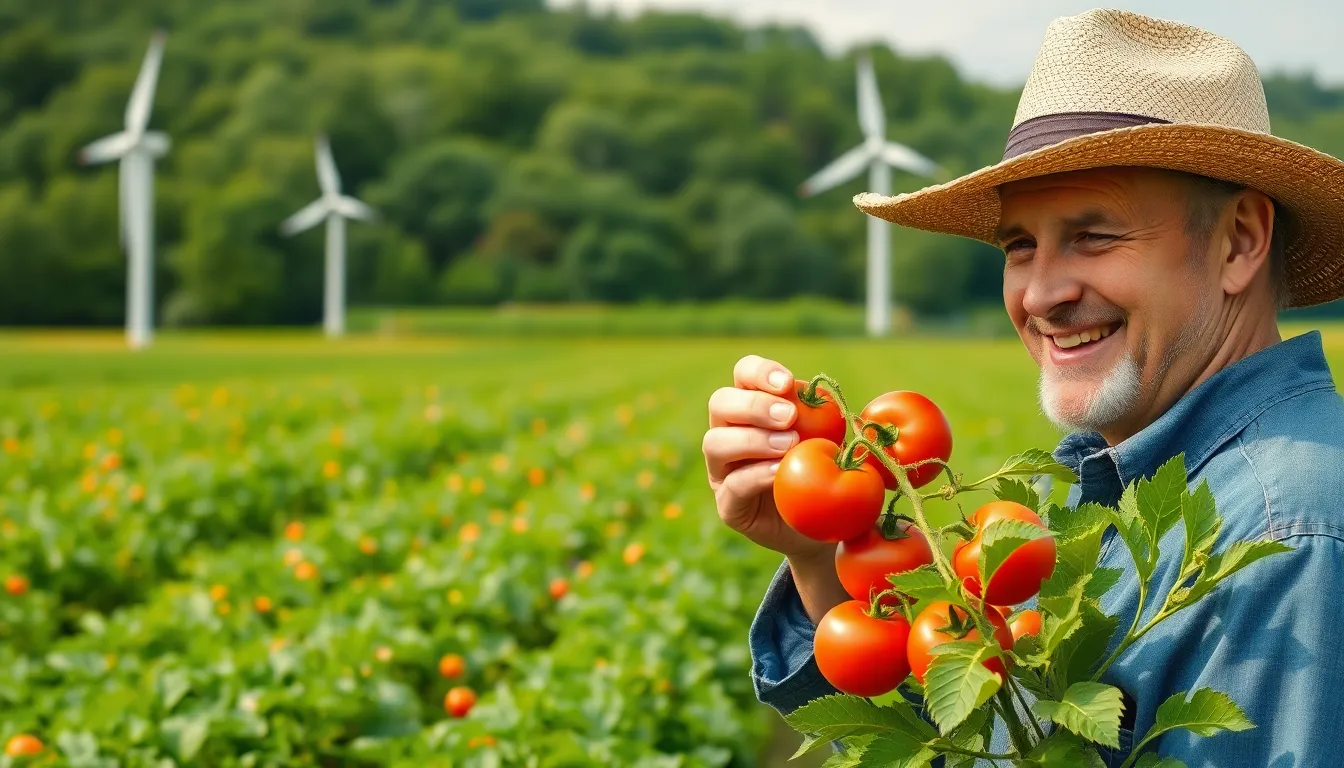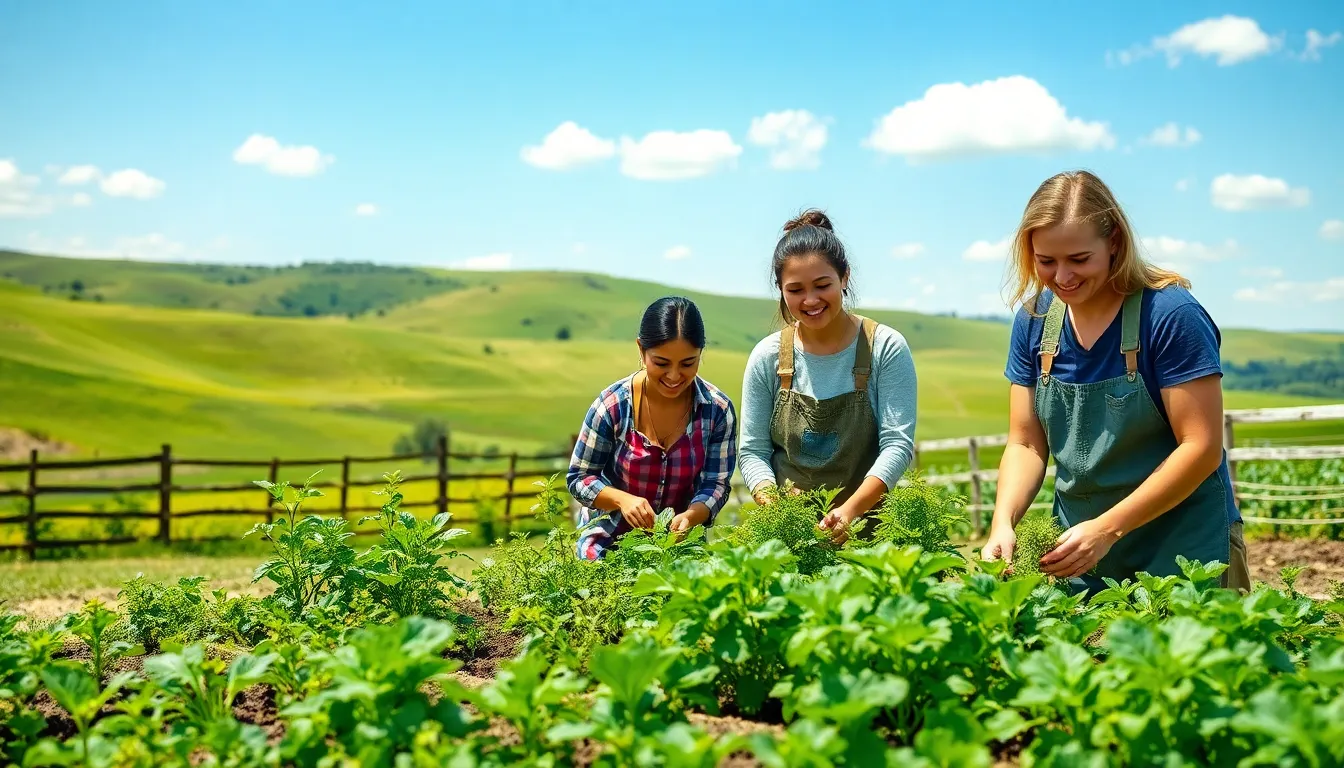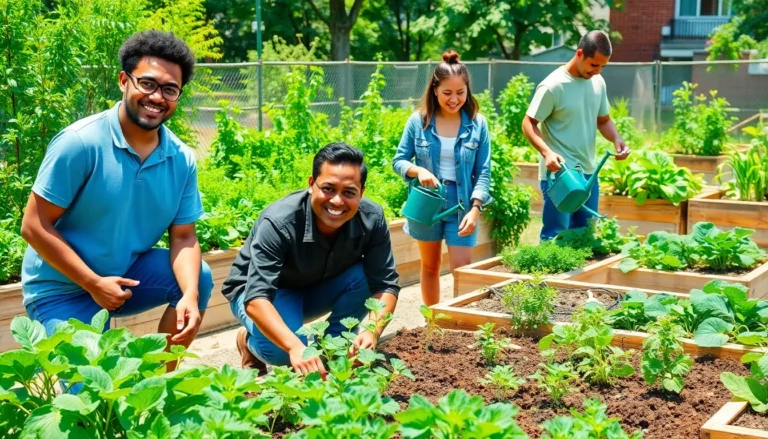In the heart of the Bluegrass State, where horse racing meets bourbon sipping, sustainable living is galloping into the spotlight. Kentucky isn’t just about fried chicken and sweet tea; it’s also a burgeoning hub for eco-friendly practices that make Mother Nature proud. Imagine a lifestyle where you can enjoy the beauty of rolling hills while reducing your carbon footprint—sounds like a win-win, right?
Kentucky Sustainable Living
Kentucky’s commitment to sustainable living merges its cultural identity with eco-friendly practices. This approach benefits both residents and the environment.
Definition and Importance
Sustainable living in Kentucky refers to lifestyles that minimize environmental impact. This includes practices like reducing waste, conserving energy, and supporting local agriculture. The importance of sustainable living lies in its role in combating climate change and preserving natural resources. Communities benefit through improved air quality and decreased energy costs. Furthermore, enhancing local economies through sustainable agriculture leads to job creation and healthier food options.
Key Principles of Sustainability
Sustainability hinges on several core principles. First, conservation emphasizes reduced resource consumption. Second, renewable energy sources, such as solar and wind, play a crucial role in providing clean energy. Third, community engagement fosters collaborative efforts in environmental stewardship. Local initiatives often include urban gardening and recycling programs. Education and awareness inspire individuals to adopt sustainable practices. Supporting local businesses contributes to economic resilience while minimizing transportation emissions.
Sustainable Practices in Kentucky

Sustainable practices flourish in Kentucky, blending environmental stewardship with local traditions. Residents actively engage in methods that promote ecological balance and community health.
Agriculture and Farming
Diverse agricultural techniques encourage sustainable farming in the state. Organic farming methods reduce pesticide use while enhancing soil health. Community Supported Agriculture (CSA) programs connect local farmers with consumers, fostering accountability and fresh produce access. Specialty crops, including heirloom varieties, expand farmer markets, supporting biodiversity. Furthermore, regenerative practices like crop rotation and cover cropping preserve natural resources and improve yields. The emphasis on sustainability in agriculture strengthens local economies and protects ecosystems.
Renewable Energy Solutions
Innovative renewable energy solutions are increasingly adopted across Kentucky. Solar panel installation has grown, providing homeowners with clean energy options. Wind farms also contribute significantly to the state’s energy portfolio, harnessing natural resources efficiently. Local governments encourage energy efficiency initiatives, such as infrastructure improvements and incentivizing green building practices. Biomass energy, derived from organic waste, provides sustainable alternatives for heating and power generation. The emphasis on renewable energy not only reduces carbon emissions but also bolsters economic growth and energy independence.
Community Initiatives
Community initiatives in Kentucky play a vital role in promoting sustainable living through collaborative efforts and local engagement. Various organizations and programs address environmental challenges while fostering a sense of community and responsibility.
Local Organizations Supporting Sustainability
Local organizations in Kentucky contribute significantly to sustainability efforts. Groups such as the Kentucky Natural Lands Trust work to protect ecosystems through land conservation initiatives. The Kentucky Center for Agriculture and Rural Development promotes sustainable agricultural practices, empowering farmers with resources for eco-friendly methods. Various charities focus on education, helping residents understand the benefits of sustainable choices. These organizations often host workshops and events that encourage active participation in eco-conscious living.
Community Gardens and Urban Farming
Community gardens emerge as a growing trend in Kentucky’s urban areas. They provide residents with opportunities to cultivate fresh produce while promoting social interaction. Urban farming initiatives enhance food security and encourage sustainable practices, such as composting and organic gardening. Schools and neighborhoods collaborate on these gardens, fostering a sense of shared responsibility for local food systems. Participants often report improved community ties and greater awareness of environmental issues, making these projects a cornerstone of Kentucky’s sustainable living efforts.
Eco-Friendly Resources
Kentucky offers a variety of eco-friendly resources, supporting sustainable living through products and services tailored for residents. Individuals looking to contribute to sustainability can explore a range of options.
Sustainable Products and Services
Sustainable products provide residents with choices that align with their eco-conscious values. Organic foods from local farms reduce carbon footprints while supporting the community. Reusable household items, such as stainless steel straws and cloth bags, contribute to waste reduction efforts. Solar energy systems empower homeowners to harness renewable energy and lower utility bills. Additionally, businesses such as Poppy’s Natural Foods and the Greenhouse17 aim to promote eco-friendly practices through their offerings, enhancing Kentucky’s sustainable lifestyle.
Online Platforms for Green Living
Online platforms play a significant role in promoting green living in Kentucky. Websites like the Kentucky Sustainable Agriculture Working Group offer resources, workshops, and tips for sustainable farming and gardening practices. Social media channels facilitate connections among like-minded individuals who share eco-friendly initiatives. Furthermore, e-commerce sites specializing in green products provide convenient access to sustainable goods, from eco-friendly cleaning supplies to energy-efficient appliances. These digital tools empower residents to engage with sustainable living practices, fostering a more resilient community.
Challenges and Opportunities
Kentucky faces several challenges and opportunities in the realm of sustainable living. Addressing these obstacles requires commitment and innovation from both individuals and communities.
Obstacles to Sustainable Living in Kentucky
Barriers exist that hinder the state’s sustainable living efforts. Limited access to resources often presents a significant challenge, particularly in rural areas. High initial costs for renewable energy installations can deter many residents from making the switch. Additionally, a lack of widespread education on sustainable practices creates gaps in knowledge, preventing the adoption of eco-friendly habits. Difficulties in transitioning from traditional agricultural methods to sustainable farming techniques can also impede progress. These challenges necessitate collaborative efforts from local organizations and policymakers to drive meaningful change.
Future Prospects for Sustainability
Bright prospects await Kentucky’s sustainable living movement. Expanding renewable energy initiatives can significantly enhance energy independence. More investment in education and outreach programs creates opportunities for community engagement and increased awareness. Rising consumer interest in local and organic products fuels growth in sustainable agriculture. As more businesses adopt eco-friendly practices, economic resilience strengthens across regions. Leveraging technology to facilitate connections among residents and resources fosters a culture of sustainability. Kentucky’s potential for sustainable living continues to grow as it embraces these opportunities.
Conclusion
Kentucky’s journey toward sustainable living reflects a harmonious blend of tradition and innovation. As communities rally around eco-friendly practices the state showcases its potential for a greener future. The commitment to reducing carbon footprints while celebrating local culture creates a unique environment for growth and resilience.
With increasing awareness and engagement residents are embracing sustainable choices that benefit both the planet and their communities. The path forward is filled with opportunities for collaboration and education fostering a culture of sustainability that can thrive for generations to come. Kentucky’s dedication to this movement not only enhances the quality of life for its residents but also sets a powerful example for others to follow.




